Most Frequently Asked Questions
Reliable reference standards are critical for confirming the safety and efficacy of drug substances and drug products. It is the sponsor’s responsibility to procure, qualify, and manage reference standards. In addition to a reference standard being necessary for the active pharmaceutical ingredient (API) for a particular drug, additional reference standards may also be necessary for degradation products and key process impurities such as starting materials and intermediates. In some cases, reference standards may also be necessary for metabolites. Failure to properly characterize and maintain reference standards in a qualified state may result in program delays and increased costs, negatively impacting drug development.
To support development of a reference standard management program and help clear these hurdles, we’ve compiled some of the most frequently asked questions about reference standards in the pharmaceutical industry.
How often should we retest reference standard materials?
Establishing a requalification period for reference standards depends on a variety of factors. The frequency will vary depending on the characteristics and use case of the material you’re testing, and should be supported by data generated during stability studies. For an API reference standard, stability data generated for the drug substance is likely available that can be used to set an appropriate retest schedule.
For materials like reference markers and impurity markers, frequently reassessing their purity over time is less important, as their identity is the most critical aspect. With these materials, you can typically be more generous in setting a timeline for retesting, as it’s not as critical if the purity changes over time. This underscores the importance of a reference standard management program, which will allow you to collect stability data for all reference materials and establish more appropriate retest periods over time.
How pure does my reference standard need to be?
Most of the guidance regarding purity from regulatory bodies like the U.S. Food and Drug Administration (FDA) calls for “highly purified compounds,” but often does not define exactly what that means. U.S. Pharmacopeia (USP) and The International Council for Harmonisation of Technical Requirements for Pharmaceuticals for Human Use (ICH) have similar guidelines. Necessary purity depends on the materials you are working with, as some will be less pure than others due to the nature of the material.
The most important thing to understand is the material’s purity value. The material must be fully characterized with all the techniques we spoke about in the “Reference Standard Management for Pharmaceutical Development” webinar. If you accurately understand the purity value, overall purity is somewhat less important.
In what scenario are secondary standards appropriate to be used? And what if a primary standard is not available?
It requires advance planning to get a secondary standard in place, as it must be qualified against a compendial standard or a primary standard. If there is a compendial standard available, but it is costly or the supply is interrupted, having a secondary standard in place can help avoid unnecessary delays or problems with your program. If a primary standard is not available, such as during development of a novel compound, one should be established by fully characterizing an available batch of material.
What type of software do you use to manage reference standards?
Reference standard programs are multifaceted, so any software solution will need to be as well. A good place to start is your company’s LIMS, which will help in tracking standard test dates, moving the data through a formal review process, and generating a certificate of analysis. You may also need to establish other standard operating procedures and possibly develop custom software solutions, depending on the complexity of your program.
For additional expertise on this topic, MRIGlobal’s John Cobb, program manager, and Audrey Ingram, Ph.D., senior chemist, offered a free webinar on essential insights into the qualification and distribution of reference standards, and the importance of developing a formal program for reference standard management. You can watch the webinar recording at “Reference Standard Management for Pharmaceutical Development.” You can also read more on the topic at “Four Keys to Reference Standard Management.”
GETTING STARTED AT MRIGLOBAL
Contact MRIGlobal for further information about our work in pharmaceutical sciences. Through a multidisciplinary approach, we provide customized pharmaceutical development solutions for government and commercial organizations. This includes expertise in pharmaceutical analysis, API manufacturing, clinical research support, repository management, and bioanalytical chemistry.
To discuss how we can help your project be successful, contact us today.
SIGN UP FOR OUR NEWSLETTER
Sign up for the MRIGlobal newsletter! It’s the best way to get the latest updates in the world of applied scientific engineering research delivered directly to your inbox.

